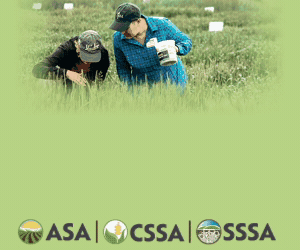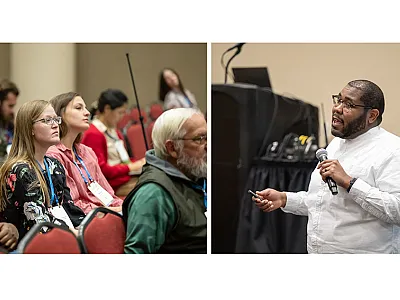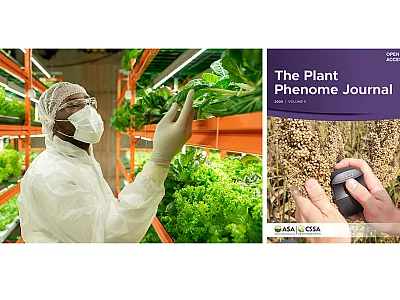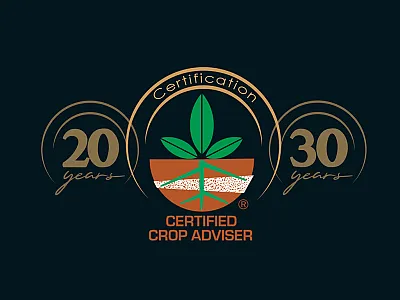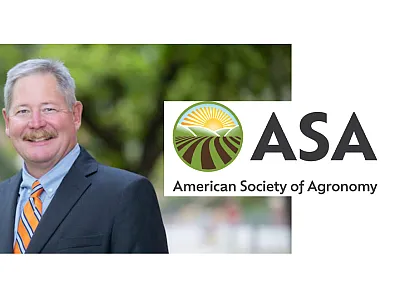Meet Sandy Endicott, Vice-Chair of the International CCA Board
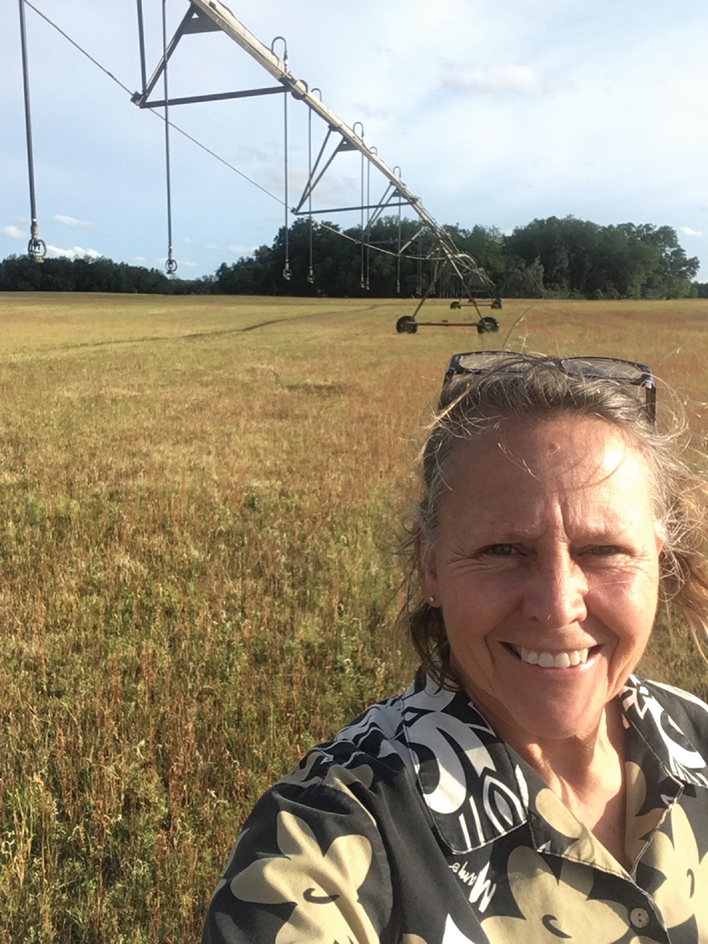
Sandy Endicott’s journey into agriculture sprang from a typical foundation: her experiences on the family farm. Stubborn weeds in bean fields would set Endicott on her path to becoming a weed scientist and a CCA. “My earliest memories revolve around the farm where I grew up near Deshler, Ohio,” Endicott recalls. Her father used a banded granular herbicide, Amiben, in the late 1960s and early 1970s to control weeds in the soybean fields and cultivated between rows. “My parents, sister, and bother, and I spent hours pulling weeds that were missed by the two practices. Once I began contemplating a career, I remember thinking there would always be a weed somewhere that needed to be managed.”
Endicott enrolled in the agronomy program at The Ohio State University, gaining both a bachelor’s and master’s degree. “I pursued the ‘plant protection program,’ a well‐rounded hands‐on crop management program that offered classes on soils, insects, crop diseases, and weeds,” Endicott remembers.
She worked as a teaching assistant in her senior year for Dr. Frank Himes. That experience cemented the foundational knowledge that Endicott would rely on in her career and provided invaluable experience sharing that knowledge with others. “I learned so much when I had to explain principles, answer questions, and teach students,” she says. During her master’s program, Endicott would continue her teaching assistantship in weed science and grain crops.
At the time, Endicott didn’t realize she enjoyed teaching, but sharing agronomic information would comprise a large portion of her agronomy career.
Teaching Agronomy Internationally
Endicott has worked for Pioneer Hi‐Bred in various positions for 30 years. She began as a technical agronomist in northern Ohio before leaving the cold weather behind to manage the agronomy program at research stations in the Hawaiian Islands for several years. Endicott then became the international agronomy manager, working with agronomy managers in all countries that sold Pioneer Brand seed. As international agronomy manager, she ensured that product testing and evaluations were compliant with company standards, organized training and educational programs, and met with local farmers.
Training programs varied with each country and location from very basic to high‐level technical training. Endicott traveled to Brazil, Argentina, South Africa, and the Philippines, introducing agriculture professionals to GMO technology. Hands‐on classroom and plot work were used to introduce GMO traits and discuss the development and safety of GMOs and the expression of traits. She also trained individuals to use gene‐checking kits, identifying the GMO traits and evaluating crop damage. The training Endicott and her team provided enabled field staff to speak confidently with customers about GMO technology.
After 30 years with Pioneer, Endicott is enjoying semi‐retirement in northern Florida on a farm where she and her husband Jeff raise and bale coastal bermudagrass for cattle and horse customers.
Expanding the International CCA Program
Wanting to stay involved in the industry and the Societies, Endicott is looking forward to serving over the next year as vice‐chair of the International CCA (ICCA) Board. “Even though I am not actively consulting, I use all my CCA knowledge and education daily and strive to keep the environmental quality as high as possible on my farm. I also want to continue sharing insights to assist other CCAs.”
One of her goals as vice‐chair is to continue to expand the CCA program into new countries and ensure the program is meeting the diverse international agriculture needs. “My international experience is a good fit to help the ICCA program grow.”
Having experienced the vast agricultural difference within regions of the same country, Endicott understands the challenges international CCAs face. Not only can there be regional differences in temperatures, soils, rainfall, and disease and insect pressure, which dictate production challenges, there are also vast differences in the educational content and approaches that work well with the wide array of producers.
Holding educational programs worldwide, Endicott experienced how challenging it can be to convey ideas we often take for granted. Needing the information translated and overcoming language barriers doubles the time investment from the beginning. Even finding the correct words to convey the information can be challenging. “However, this is when learning Latin names of insects, weeds, and diseases really paid off as those were common terms used worldwide,” Endicott says.
Meeting the Needs of CCAs
In addition to expanding the CCA program into new countries and meeting the needs of international CCAs, Endicott wants to support the CCAs in the U.S. “We must continue providing valuable educational opportunities that meet the needs of CCAs and the producers they serve. We also need to be vigilant in promoting the value of working with CCAs to producers,” Endicott says.
Seeing many farmers choose a course of action based solely on economics, Endicott believes CCAs must present the best possible long‐term options for producers. “As CCAs, we are tasked with helping producers manage their land for the best outcomes, taking into consideration not just this season’s crops but also the generations to follow.”
This long‐term outlook can be challenging given the difficult economic realities of the present, Endicott acknowledges. “Sometimes the cheapest options don’t address the land and environmental issues that will impact those farming the land in the future.”
Endicott wants to encourage CCAs to promote their value as agricultural partners to the companies and farmers they serve. “As CCAs, we have the well‐rounded education and first‐hand knowledge that enables us to see the possible consequences of choices and need to ensure we present all the information we have to help producers make the most informed decisions possible that promote economic and environmental sustainability.”
Text © . The authors. CC BY-NC-ND 4.0. Except where otherwise noted, images are subject to copyright. Any reuse without express permission from the copyright owner is prohibited.


